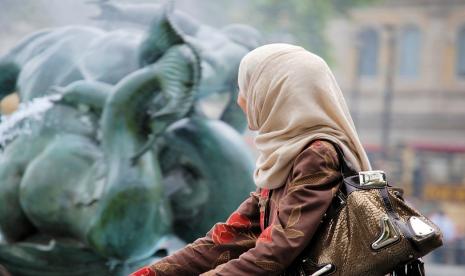Many Muslim women in Canada face professional consequences because of their headscarves.
REPUBLIKA.CO.ID, OTTAWA — In addition to her skills, qualifications and expertise, Muna Saleh has observed an additional factor that people value to determine her professionalism, namely her hijab. People often associate any job with the headscarf they wear.
Wearing the hijab is a personal religious decision, but many Muslim women in Canada face undue professional consequences for wearing the headscarf. Even though wearing the hijab is an individual right.
“For some people, the hijab is inherently considered unprofessional on its own,” said Muna Saleh, assistant professor in the faculty of education at Concordia University in Edmonton. The Globe and Mahe, Thursday (5/19/2022).
Saleh said women who wear the headscarf are stereotyped as being inherently oppressed and seen as not being intelligent enough or capable of making appropriate and rational decisions about their bodies. According to the Head of Equity, Diversity and Inclusion (EDI) at Citizen Relations, a global communications and public relations firm, Shefaly Gunjal notes that an additional challenge for Muslim women who wear the hijab is that they are often the only visible Muslims in the workplace.
As a result, they may be subject to close surveillance, both in work, in behavior, in speech, and even in the clothes they wear. “You’re like a beacon of religion, where people bring all their assumptions about Muslims to you, that’s of course overkill,” he said.
Gunjal said Muslim women in the workplace may feel a lack of power and privilege at the intersection of race, gender and religion. He felt it himself in the world where he worked.
“I can tell you from personal experience that the hijab is a choice I made and celebrate for myself, and I’m very passionate about it,” she said.
The challenges of navigating the workplace as a hijab-wearing woman are complicated in Quebec, Canada, where the headscarf is explicitly banned in certain professions. The pending enactment of a secularism law known as Bill 21 bars people in many public sector jobs from wearing religious symbols.
In 2021, Quebec elementary school teacher Fatemeh Anvari was fired from her job for wearing the hijab. This case is indicative of broader issues affecting the careers of Muslim women in Quebec.
“In Canada, when a woman decides she’s ready and wants to wear the hijab, she can’t just think about the religious ramifications,” Lina El Baker said.

“Thinker. Hardcore web aficionado. Zombie evangelist. Pop culture trailblazer. Student. Passionate twitter maven.”






